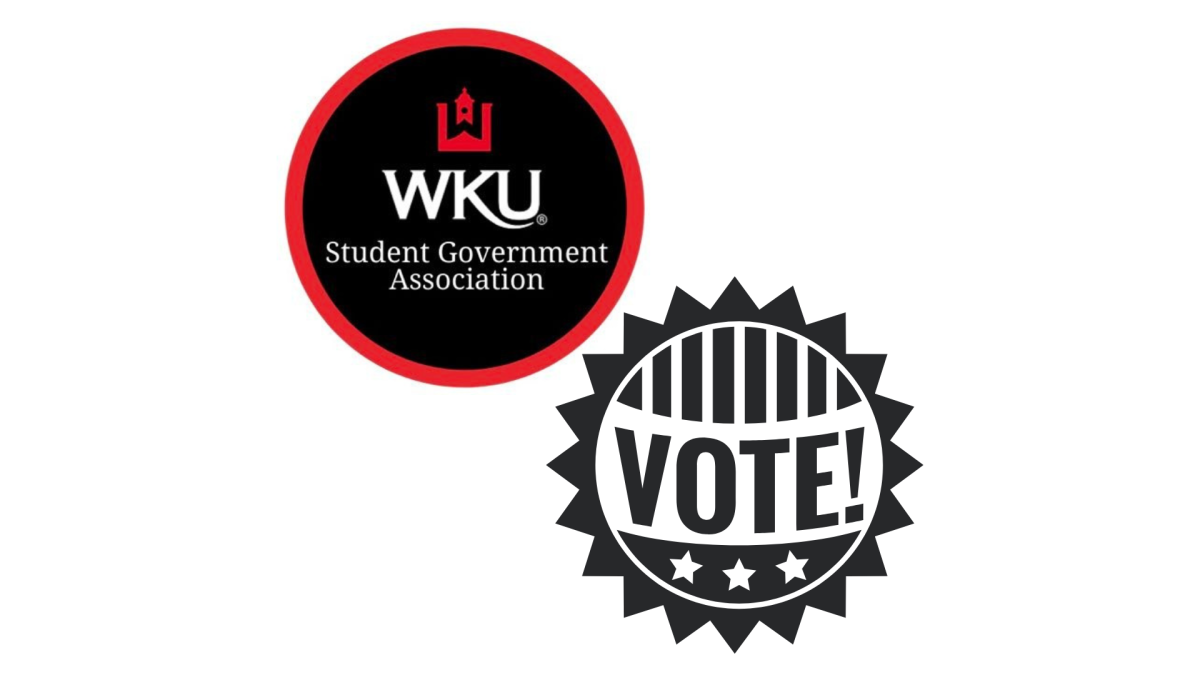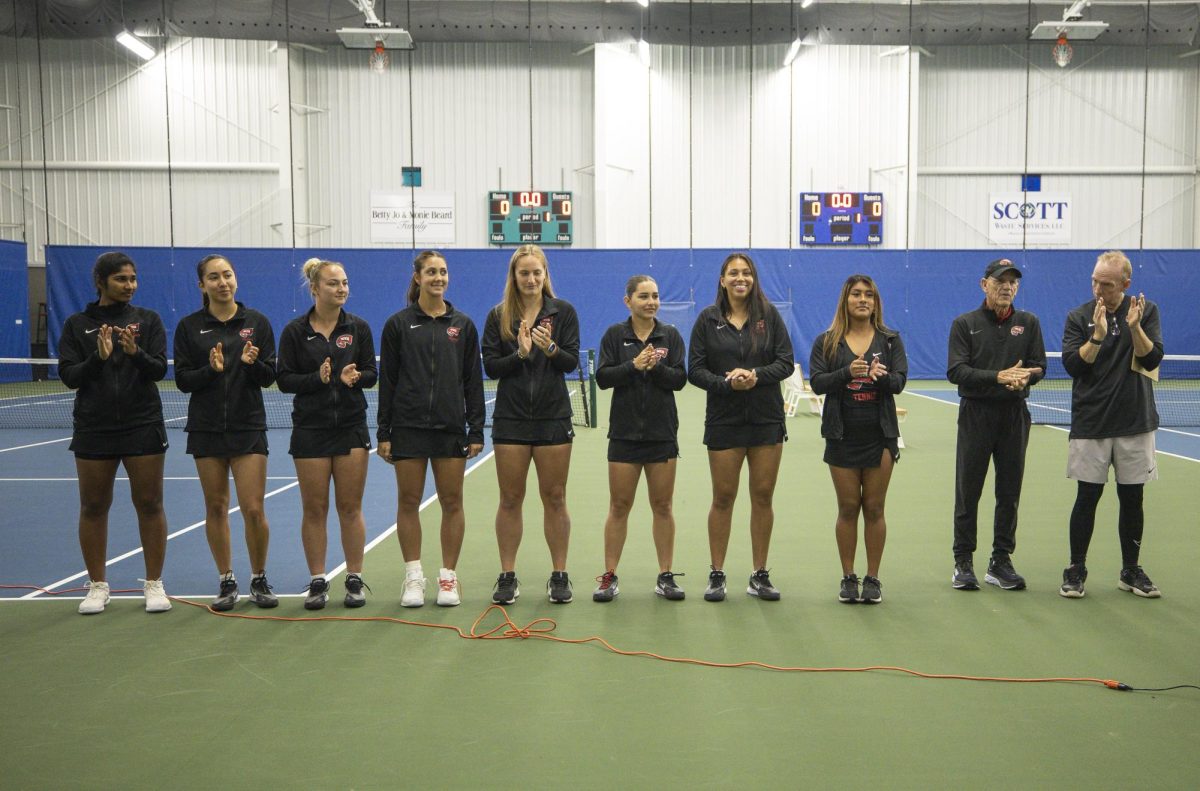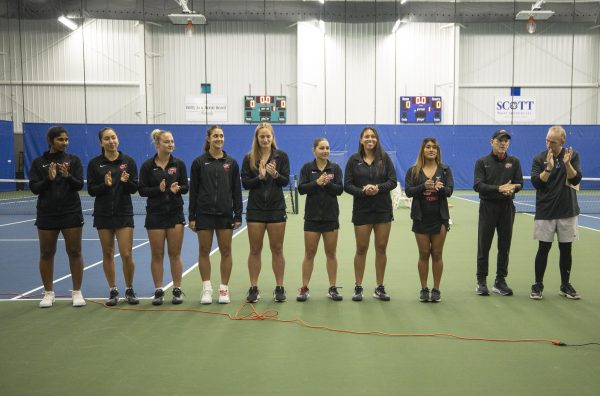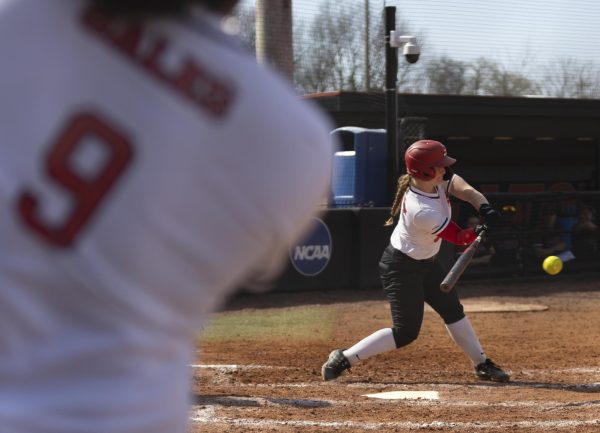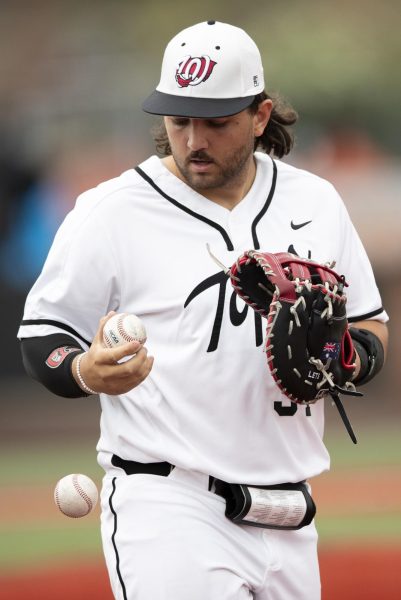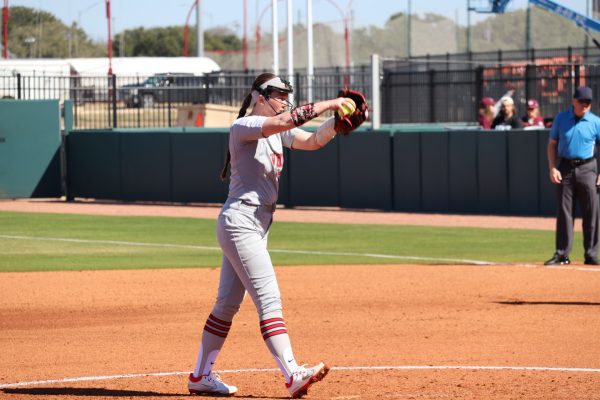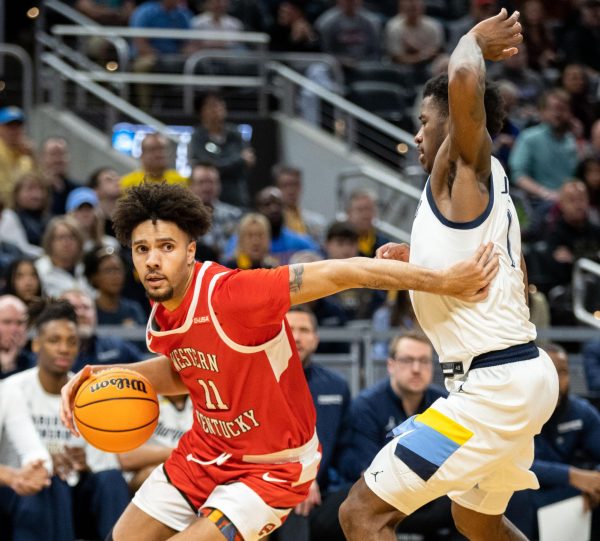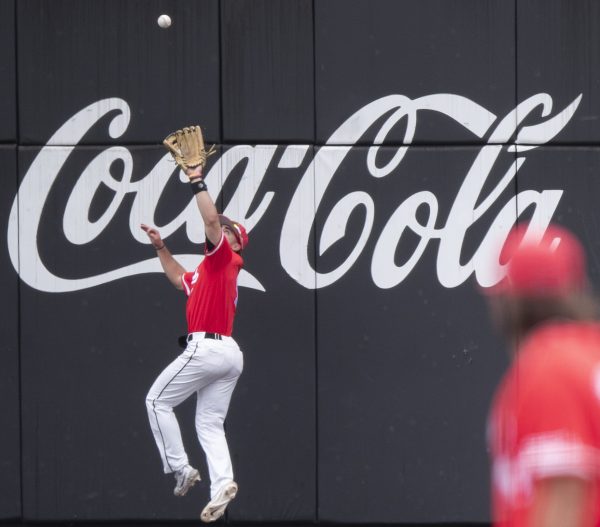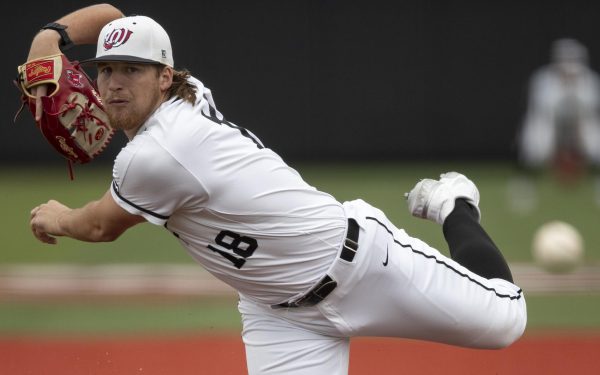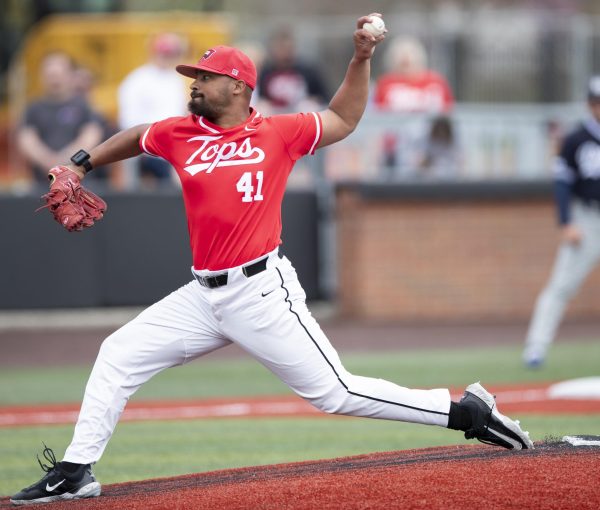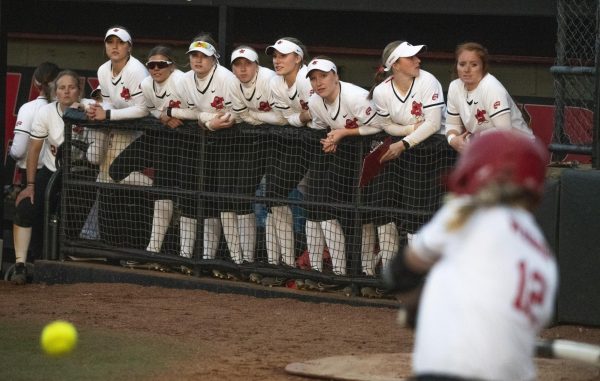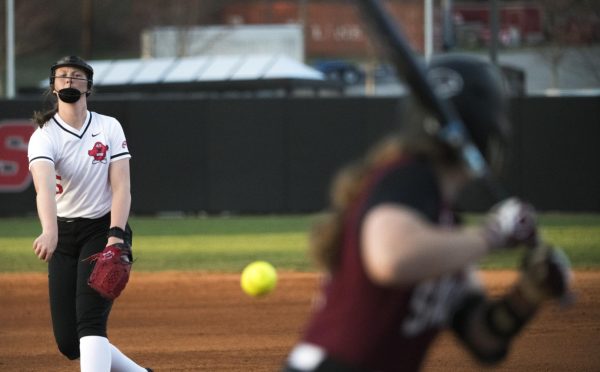MEN’S SOCCER: No money, Mo’ problems
October 8, 2002
Sitting in his tiny, cinder-block office on the first floor of Smith Stadium, men’s soccer coach David Holmes knows he is facing a distinct disadvantage.
His Toppers are 6-5-1. But other Missouri Valley Conference and nationally prominent teams are not just winning, they’re also getting an early start on the recruiting trail.
“Schools are putting pressure on high school kids in the fall,” Holmes said. “They are giving kids Oct. 1 or Nov. 1 deadlines. It is a disadvantage for us since we don’t have a full-time assistant to help with recruiting.”
That’s just one of the vast challenges Holmes and the Toppers face as a sixth- or seventh-priority sport at Western.
But Holmes has found ways to get some good young talent to the Hill, despite getting a late start, and having less money to lure top prospects.
Freshman Jake Isenhour, who isn’t on athletic scholarship, has been putting in quality minutes in the midfield this season. Isenhour was able to come to Western because he got an academic scholarship.
“Jake has really been a great surprise for us,” Holmes said. “He has been doing really well in our midfield.”
Western has also gotten help from junior midfielder David Babula. He was taken as a walk-on his freshman year and now receives a partial scholarship.
Babula started in the central midfield in Sunday’s 1-0 loss to No. 10 Bradley.
“I get my books paid for,” Babula said with a sarcastically excited tone.
Holmes said he has been pleased with the way many of his players have turned out.
“We have had terrific contributions from guys that got here through a different route,” he said.
That route has become a familiar one for Holmes, who hasn’t had a wealth of funding during any of his 18 years at Western. He’s never had a full-time assistant, unlike his Missouri Valley Conference foes. Western is the only team in the conference without at least one full-timer to help out.
That makes Holmes’ job even harder these days.
“I would love a full-time assistant,” he said. “Times have changed and recruiting is getting more complex.”
Getting creative and selling kids on the potential of the program may be the Toppers’ answer. Even with their scholarship restraints.
As Western tries to play with the big dogs, they are without the luxury of luring big-time recruits with full scholarships or the assurance of playing in an NCAA Tournament.
The Hilltoppers have a respectable mark of 52-39-2 since 1998, but have never qualified for the big show.
And, not surprisingly, money is at the root of the problem.
Western has 24 players on its roster this season, but it has a maximum of only eight scholarships each year. That means most players, like Babula, get only a small amount of money in partial scholarships.
Holmes said the monetary restrictions force him to recruit heavily for in-state talent. But he also noted that he is able to reach out to certain counties in Tennessee, Indiana and now Ohio where the university offers in-state tuition.
“These initiatives by the university’s administration are really helpful to us,” Holmes said. “It is helping with opening doors to other areas.”
The team has $81,024 of its budget allotted for scholarships this season. But players like Richard Mupfudze and graduate assistant and former player Tawanda Chitapa are from Zimbabwe, and it costs considerably more for them to attend Western than the team’s seven Kentucky residents.
While Western’s allotment of scholarships may seem low, it’s not terrible. The maximum scholarships allowed by the NCAA is 9.9.
One school, just across the state line, that uses all of those scholarships is No. 4 Indiana. And more money does appear to correlate with more success.
The Hoosiers have won five national championships and are 88-17-3 over the past four seasons.
It’s not just more scholarships, but recruiting resources that set Indiana apart from a program like Western’s. The discrepancy in recruiting budgets between the two schools is even greater than in scholarships.
Jerry Yeagley and his two full-time assistant coaches at Indiana have $17,000 a year slotted for traveling to recruit prospects, compared to Holmes’ $4,000. Not only can they travel more, but Yeagley can also send out his assistants to recruit during the season, while Holmes must wait until November to hit the road.
“We don’t really have a problem in locating talent,” Holmes said. “And we recruit heavily in the state.”
But unlike Western, Yeagley has the resources and school tradition to catch some of the nation’s big fish.
“We primarily recruit in our region,” he said. “But we also go after players nationwide.”
The Hoosiers have players from 13 states on their roster. Even more impressive is the fact that of Indiana’s 25-30 players each season, over half are walk-ons with no financial aid. The Hoosiers have the ability to routinely sign top-quality players to walk-on commitments.
Indiana is similar to Western in one way, though, as Yeagley said he also doesn’t give many full scholarships.
“You pretty much have to play for the youth national team in order for me to offer a full scholarship,” he said. “We have a former national high school player of the year from California and one from New York (who have full rides). But our roster is primarily a Midwest roster.”
Unlike Western, though, a winning tradition and the university’s full support allow the Hoosiers to lure the best talent.
Indiana has won two of the past four national championships, and has been to 15 final fours in its 29 years of men’s soccer.
“You have got to have outstanding student-athletes, and you have to have a commitment from your university,” Yeagley said. “Our program is fully funded by the university.”
A fully funded program, unlike Western’s, can simply spend money where it is needed and isn’t as rigidly budgeted. Nationally ranked Missouri Valley foes Bradley and No. 6 Southern Methodist are also fully funded.
Funding is a direct result of a school’s priorities. At Western, men’s soccer isn’t at the top of the heap. Indiana Associate Athletics Director Kevin Clark said that Indiana holds men’s soccer as a higher priority than some other schools.
“We do because it is a highly visible program, and we have a lot of winning tradition,” he said.
According to Clark, men’s soccer is their fourth-highest revenue producing sport. And Bradley’s Associate Athletics Director Craig Dahlquist noted that men’s soccer is his school’s second priority, behind men’s basketball.
Darrell Horn, in charge of Western athletics’ business affairs, said that men’s soccer is no higher than sixth in revenue at Western.
The Toppers are expecting around $1,100 in ticket revenue this season. That is a minuscule amount when compared to the school’s biggest revenue generator, men’s basketball, which plans on bringing in around $400,000 this season.
According to Horn, no Western team can support itself, or even breaks even. Hilltopper soccer’s $1,100 revenue barely puts a dent in the team’s $192,441 overall budget.
“It’s just not feasible for men’s soccer to support itself,” Horn said.
Clark noted that even Indiana’s soccer program doesn’t break even.
“Ninety-nine percent of collegiate athletic programs don’t make money,” Clark said. “Only a select few are able to make money.”
Still, the nation’s elite soccer programs get far more money for recruiting and other operational costs than the Toppers. And it shows up on the rosters.
“You absolutely have to have good talent in order to be successful,” Yeagley said.
Holmes knows that and has tried to overcome his limitations by spreading out the funds creatively and offering a chance for prospects to help the Toppers early. As a result, he has brought in a talented crop of freshmen this season.
Western is starting five rookies and has even more coming off the bench. There are 10 freshmen on the roster and only two seniors.
“I think it’s a terrific group of young guys that we’ve got,” Holmes said. “And I’m looking forward to watching them as they grow.”
But the youngsters will need to mature quickly with three of their next four games against top-25 opponents. While the playing field may not be even, Western is still playing – and playing the best. Holmes and the Toppers are trying to overcome their handicaps and join that elite group.
“Every coach in the world wants a budget that allows them to be a national champion,” Holmes said. “But my job is not to determine the budget. My job is to do the best I can with what I’ve got.”
Reach Danny Schoenbaechler at [email protected]










